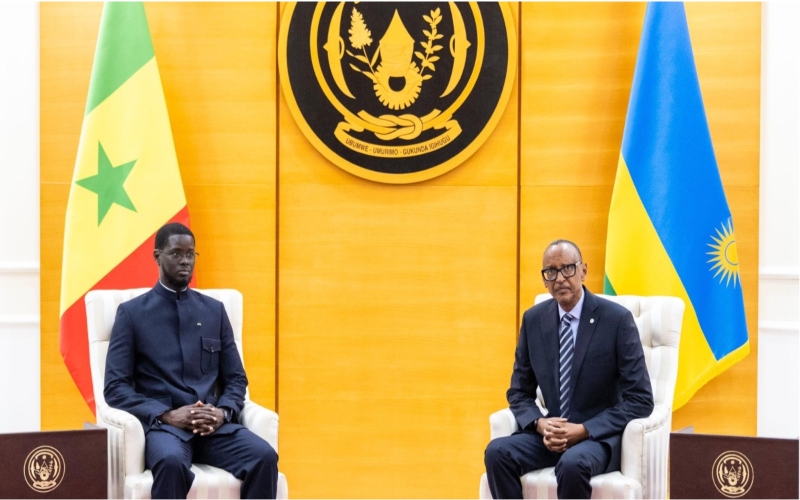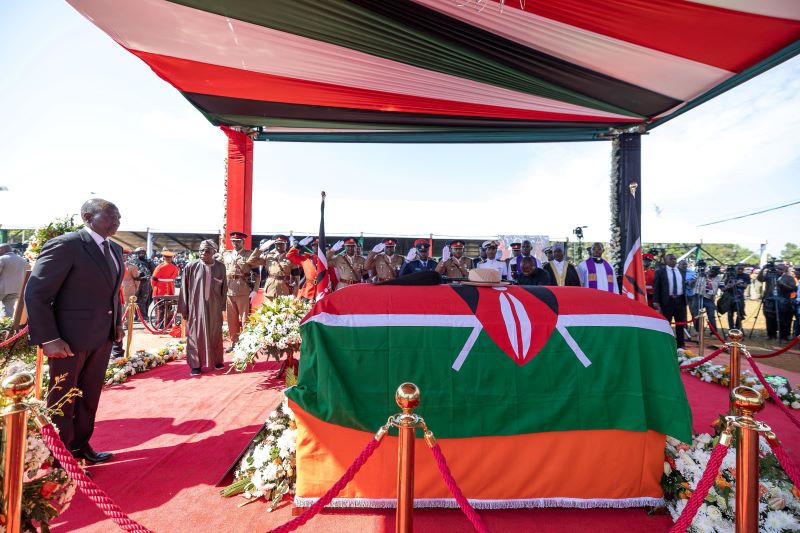Stakeholders gather in Garissa to tackle ASAL education challenges, explore tech solutions
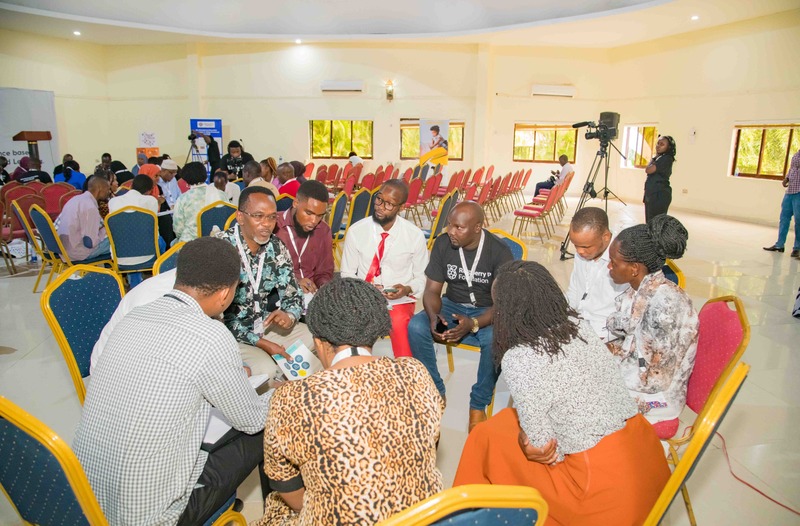
Various stakeholders emphasised the need to empower teachers to implement technology in the classroom, noting that adequate training and support are essential for effective integration into teaching practices.
Education stakeholders have gathered in Garissa to explore the use of technology to address the ongoing education crisis in the Arid and Semi-Arid Lands (ASAL) regions. The focus is on improving access, enhancing learning experiences, and increasing student engagement.
Themed “Building Resilient Learning Systems in Kenya’s ASAL Regions”, the Frontier Counties EdTech Summit brought together Ministry of Education officials, educators, innovators, local government actors, and changemakers to find localised EdTech solutions to support learning in pastoralist, rural, and refugee communities.
More To Read
- Moses Kuria proposes Technical University of Kenya to be named after Raila; here are steps followed in renaming an institution
- Over 400 candidates risk missing KCSE exam as court declines to reopen Litein Boys
- Apple to unveil next-generation devices powered by new M5 chip
- Kwale unveils Sh30 million TVET fund to empower youth, curb crime
- Landmark moment as Eldas TTC set to transform Wajir’s education landscape
- Parliament moves to hold college principals accountable over audit failures
Various stakeholders emphasised the need to empower teachers to implement technology in the classroom, noting that adequate training and support are essential for effective integration into teaching practices.
The summit heard that at least 170 teachers from the frontier counties are currently benefiting from a digital literacy-training programme, which will in turn profit more than 70,000 learners in different schools.
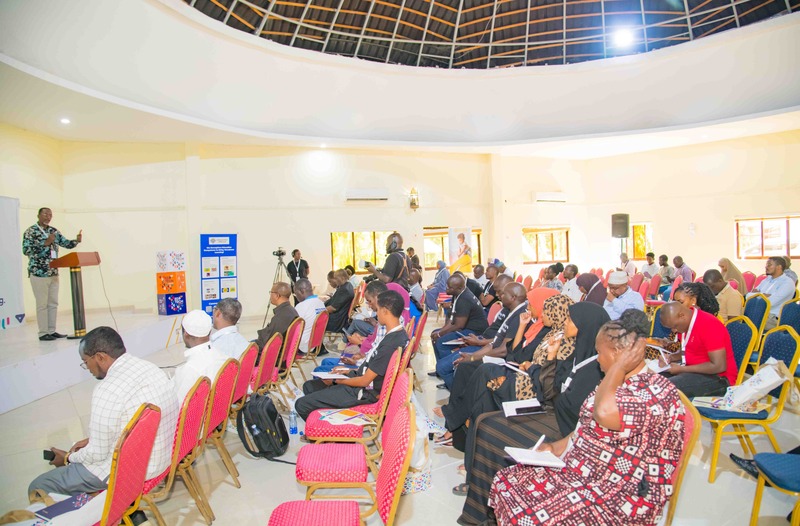 Stakeholders at the EdTech summit in Garissa. (Issa Hussein)
Stakeholders at the EdTech summit in Garissa. (Issa Hussein)
Peter Wairagu, the Country Manager for the Raspberry Pi Foundation—one of the partners in the programme sponsored by Education Technology East Africa (EdTech)—said the initiative aims to help both teachers and learners in marginalised areas access digital services and adopt technology in the classroom.
“The trained teachers will become digital champions in their schools and pass on the knowledge to their colleagues,” he said.
“We’ve observed a ripple effect, when you train one teacher, the knowledge is cascaded to others. In the near future, we expect to reach even more schools using this methodology,” he added.
EdTech CEO Jennifer Otieno announced plans to create a platform where various stakeholders can collaborate on solutions to the challenges facing technology adoption in schools.
She expressed hope that the collective effort would promote effective use of technology to address education challenges in the frontier counties.
“We are a community of EdTech enablers and innovators who have come together to share ideas on how to use technology to tackle existing challenges in the education sector. Together, we can improve the effectiveness, inclusivity, and resilience of the education system in the region,” she said.
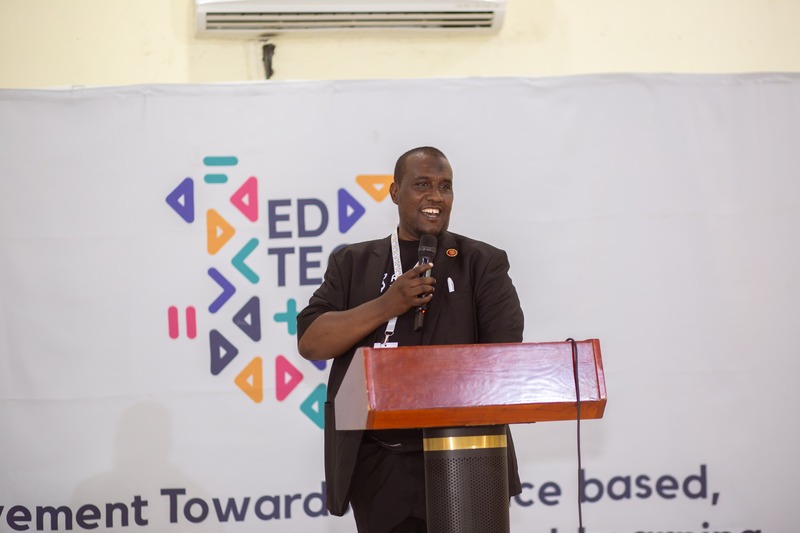 Abdullahi Maalim, Education and Governance Lead, Frontier Counties Development Council, addressing the summit. (Issa Hussein)
Abdullahi Maalim, Education and Governance Lead, Frontier Counties Development Council, addressing the summit. (Issa Hussein)
Otieno noted that the region faces complex challenges that require innovative strategies and a coordinated response from multiple stakeholders.
She emphasised the importance of providing access to educational materials and resources, along with equipping students and teachers with the necessary skills to use technology effectively.
Abdullahi Maalim, Regional Lead for Education and Governance in the Frontier Counties Development Council (FCDC), highlighted how historical marginalisation has led to poor access to education and low levels of digital literacy in the region.
“Some areas in this region still lack access to reliable electricity and network services, which are essential for digital literacy,” he lamented.
“These counties have suffered from historical marginalisation, climate change, and other setbacks, including in education and digital literacy. We must pool our resources to address these challenges,” he added.
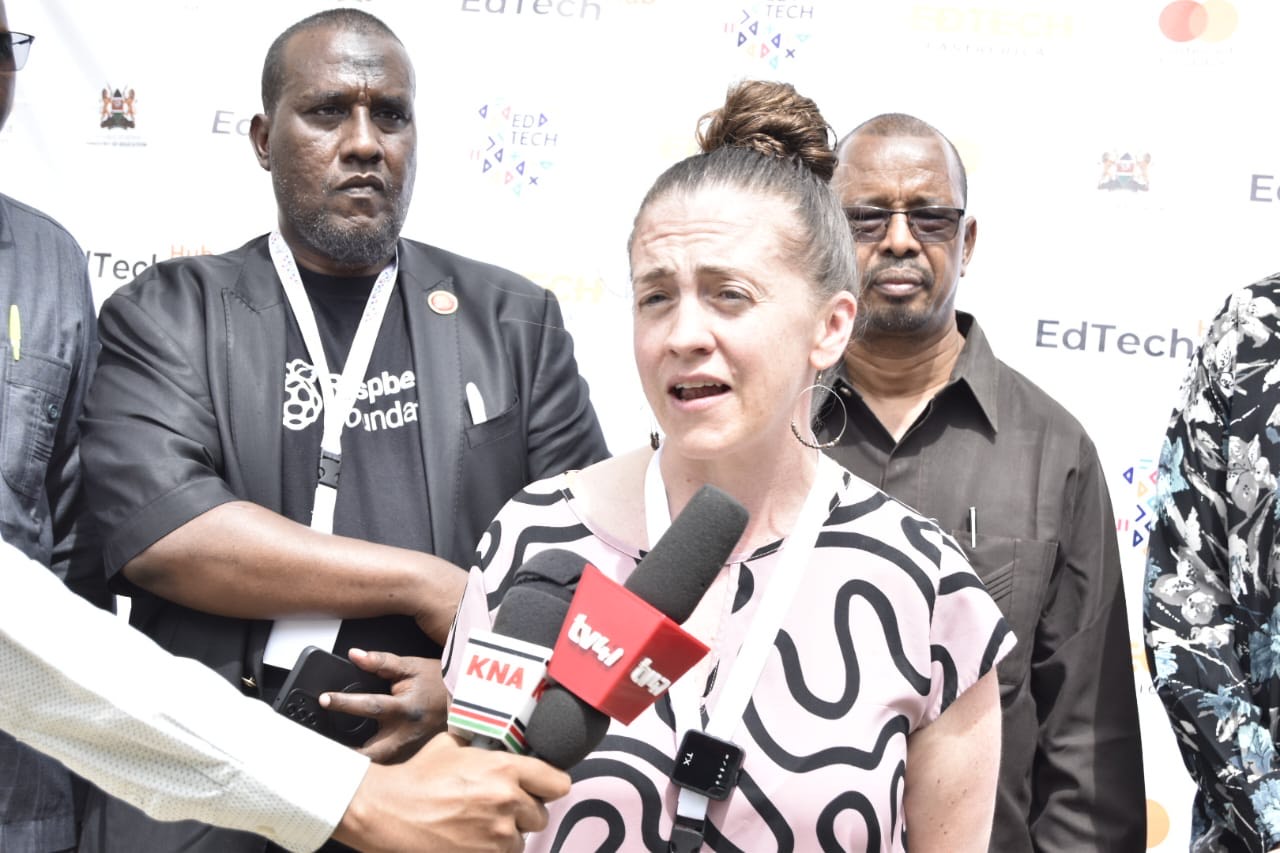 EdTech CEO Jennifer Otieno addressing the media at a Garissa hotel during the EdTech summit. (Issa Hussein)
EdTech CEO Jennifer Otieno addressing the media at a Garissa hotel during the EdTech summit. (Issa Hussein)
Simon Mwangagi from Juza AI suggested that artificial intelligence could be a solution for improving education outcomes in pastoralist areas.
“AI can help bridge the teacher gap and empower existing teachers to focus on coaching and mentoring. It doesn’t require internet connectivity and can run on low-cost devices,” he stated during the summit.
He further explained how AI can support appropriate learning by aligning with the curriculum, ensuring cultural relevance, and upholding safety and ethical standards in marginalised areas.
Other stakeholders, including UNICEF and the Lewa Conservancy, showcased how digital literacy can significantly improve learning outcomes in refugee communities and ASAL regions.
Top Stories Today












